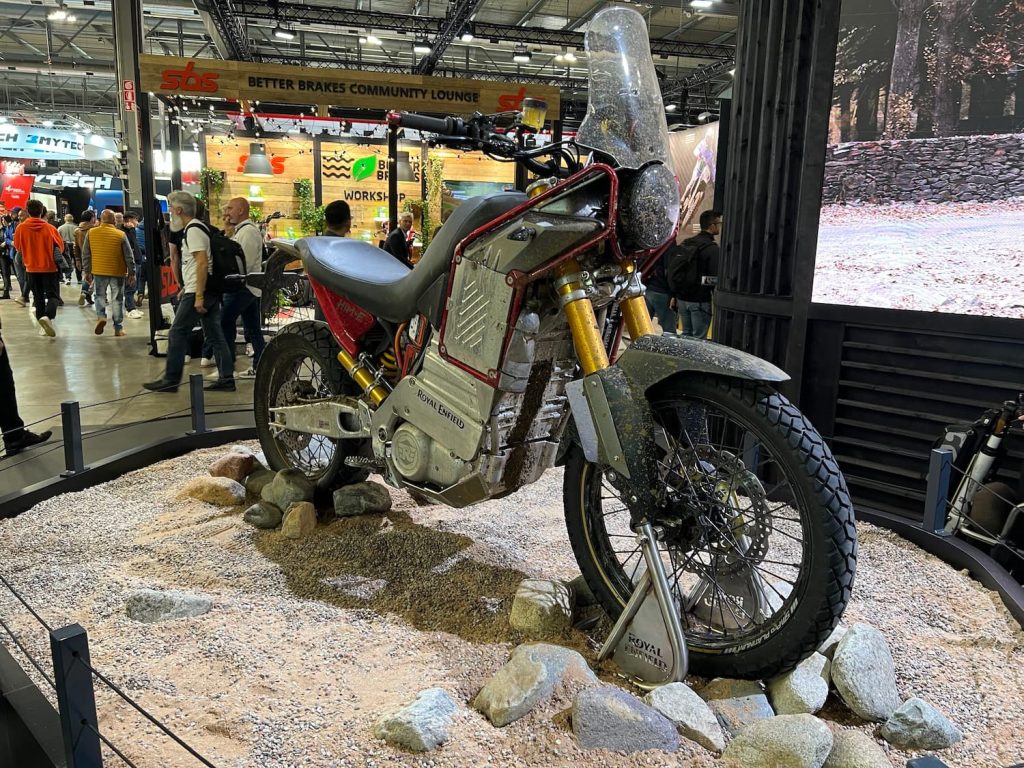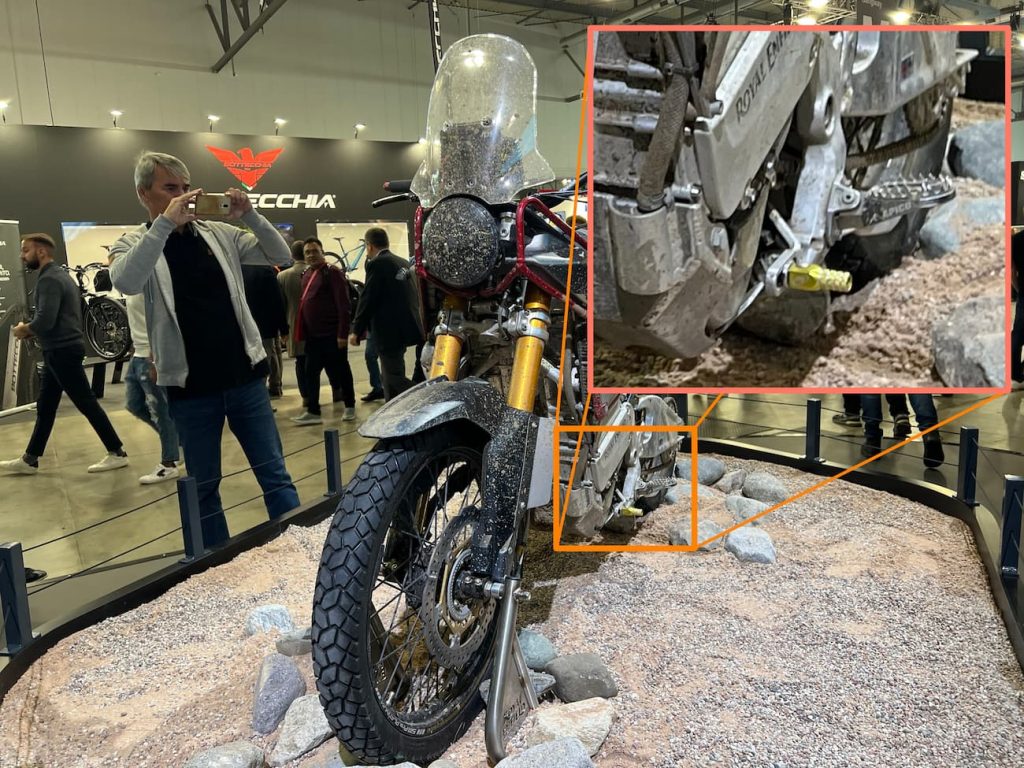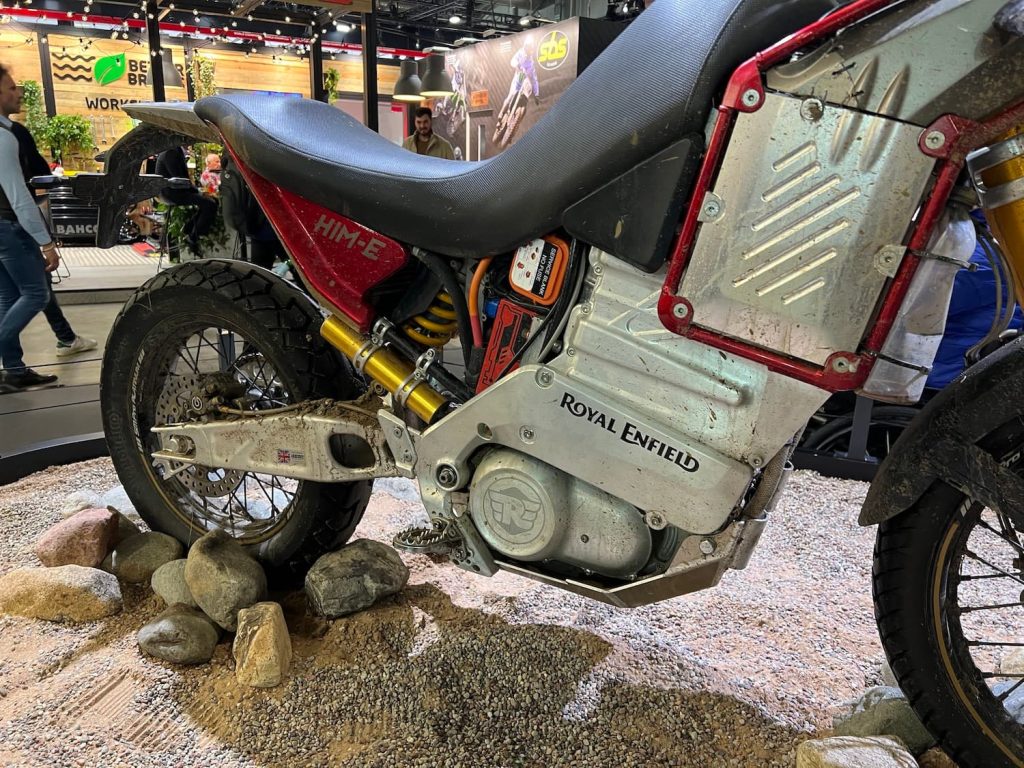
Royal Enfield has just revealed its first-ever electric motorcycle, known as the Him-E. The bike was unveiled at the 2023 EICMA Milan Motorcycle Show, where Electrek got an up-close look at the new model ahead of its unclear production path.
The Indian motorcycle company Royal Enfield is better known for its classic style and enduring performance, not its progressive or high-tech design. The company has a reputation for building sturdy machines but that tend to lag a decade (or a few) behind in the technology department. In fact, Royal Enfield is one of the oldest motorcycle brands in continuous production. Founded in 1901 in England, the company has a storied history and has cultivated a loyal following among motorcycle enthusiasts.
The company has a tendency to stick to what works well, so it comes as no surprise that it’s taken a few more years than others to finally see an electric model.
The Royal Enfield Him-E is somewhat based on the brand’s Himalayan 450 adventure bike, swapping out the pistons and fuel system for a mid-mounted electric motor and battery.

The new electric motorcycle isn’t slated for production yet, at least not in its current form. Instead, Royal Enfield is using it as a test bed to prove its electric powertrain designs that will presumably work their way onto an upcoming electric motorcycle.
In fact, we don’t exactly have many hard specs on the bike. Figures such as power, battery capacity, torque, speed, range, and just about anything else measured in numerals are still followed by a “TBD”.
Instead, we will have to make do with what we can learn from checking out the model on display. The bike has obviously been undergoing real-world testing, as evidenced by the front-heavy coating of mud and other detritus from the company’s off-road rides. But what we don’t see upfront is any form of radiator, meaning this is likely an air-cooled model, at least for now. That’s not surprising, as even the company’s ICE bikes have largely been air-cooled until recent years, bucking much of the industry’s trend towards liquid cooling. There are a few hoses wrapping around the front of the bike, but without an obvious radiator or ducting leading to one, it’s hard to say that they’re for active coolant and not just for cable management on this workhorse of a test bed.
The battery box looks to be a structural element, similar to the way the LiveWire Del Mar and other electric motorcycles use their battery-as-a-frame design to cut down on weight and complexity, as well as offer multiple models on the same electric motorcycle platform.

There also appears to be a shifter mounted on the left side tied into a gearbox, which is a rare but not unheard-of option on electric motorcycles. Because electric motorcycles are torquey enough to handle low-speed crawling and high-speed racing all in a single gear, very few have employed the added complexity of a gearbox. The rare cases that have seen manual gearboxes on electric motorcycles are usually when they’ve been added more for enjoyment than pure performance, especially when targeting traditional ICE riders who consider the old-fashioned chore of shifting to be part of the riding experience.
In true adventure bike style, the Him-E sports a chain-driving rear end, though that’s likely to add significant noise compared to the more common belt drives found on most electric motorcycles these days. Without exhaust or engine noise to cover it, chains are usually the loudest part of electric motorcycles, which has led to many manufacturers switching to belt drives.
What else do you see in the Royal Enfield Him-E prototype? Or what are you hoping to see in the final version that makes it to production? Let’s hear your thoughts in the comment section below.

